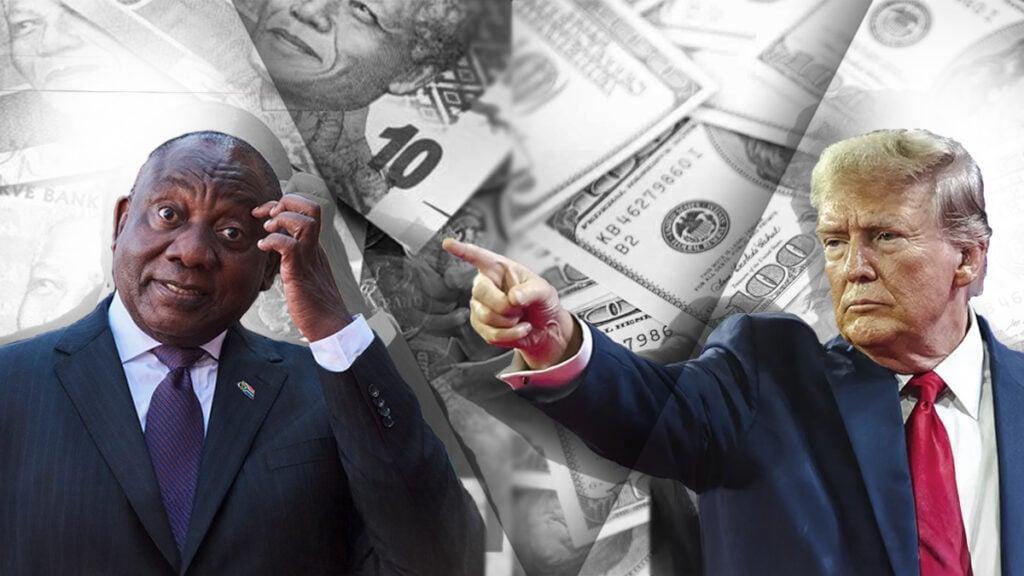Africa-Press – South-Africa. South Africa’s economy has deindustrialised to the point where it largely avoids global tariffs, including those imposed by the United States this year.
This is because most of its exports are raw commodities that many countries, including the United States, classify as critical minerals.
As a result, the only industry set to be impacted by the tariffs imposed by the United States is South Africa’s automotive industry, which already faces its own significant issues.
Thus, Coronation portfolio managers Neville Chester, Nic Stein, and Nicholas Hops said the United States’ application of global tariffs should not be that significant a constraint on the local economy.
This was included in their overview of Coronation’s Top 20 Fund for the past quarter, which was marked by uncertainty and volatility created by US President Trump’s implementation of global tariffs.
In addition to an overall 10% tariff on goods imported into the United States, Trump singled out the “worst offenders” for higher reciprocal tariffs.
South Africa was among these, and it was hit by an additional 30% tariff, which was soon put on pause for 90 days for negotiation.
Many feared that this would spell trouble for South African companies and the economy and potentially even result in higher inflation.
However, Chester, Stein, and Hops said that the application of these tariffs should not have a significant impact on the local economy.
On their own, tariffs imposed by the United States on goods imported into the country do not result in inflation in South Africa.
The fact that the currency has weakened slightly as a result may increase inflation marginally, but this was largely due to domestic issues rather than the tariffs.
Paradoxically, South Africa will also avoid the worst of the tariffs due to the country’s steady deindustrialisation over the past two years.
This process has occurred largely due to the country’s restrictive policies and the collapse of various state-owned enterprises.
As a result, South Africa is largely an exporter of raw mineral commodities, which are not impacted by tariffs. Thus, the country is largely unaffected.
How Coronation is investing
In this environment, Chester, Stein, and Hops said that they have been managing the fund with R28.5 billion in assets under management cautiously for some time.
This includes going back to when the Government of National Unity (GNU) was created in June 2024, which resulted in South African stocks rallying hard on increased optimism.
The fund managers remained sceptical that such optimism would be followed by concrete action to drive the long-awaited economic growth South Africa needs.
On top of this scepticism, the Reserve Bank’s persistence in running very tight monetary policy with some of the highest real interest rates in the world was always going to make faster economic growth more challenging.
This stance has reaped rewards, with the GNU cracking under the pressure of the Budget and various other pieces of legislation.
As a result, there has been increased volatility in South Africa-specific stocks and periods of sharp rand weakening.
The fact that this happened in the midst of a global risk-off period due to the imposition of tariffs on the rest of the world by the US just added to the selling pressure.
Given all the volatility created by Trump’s presidency so far and tensions within the GNU, the Top 20 Fund’s structure has remained broadly unchanged.
It has retained its very large holding in defensively positioned companies such as AB InBev and AngloGold, with very few new investments being added.
The fund has also benefited from the strong performance of South Africa’s largest banks, particularly Standard Bank and Nedbank, as well as insurance giant Sanlam.
All of these companies declared excellent dividends and remain strong generators of cash, insuring they retain a buffer against external shocks.
The top ten holdings in Coronation’s Top 20 Fund can be seen in the image below.
Source: dailyinvestor
For More News And Analysis About South-Africa Follow Africa-Press






